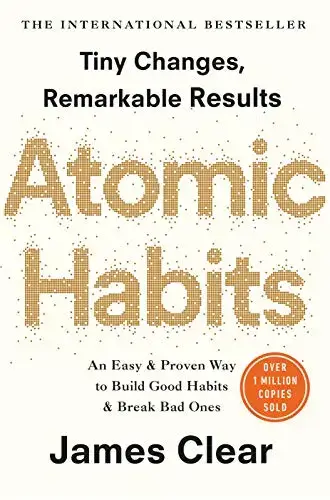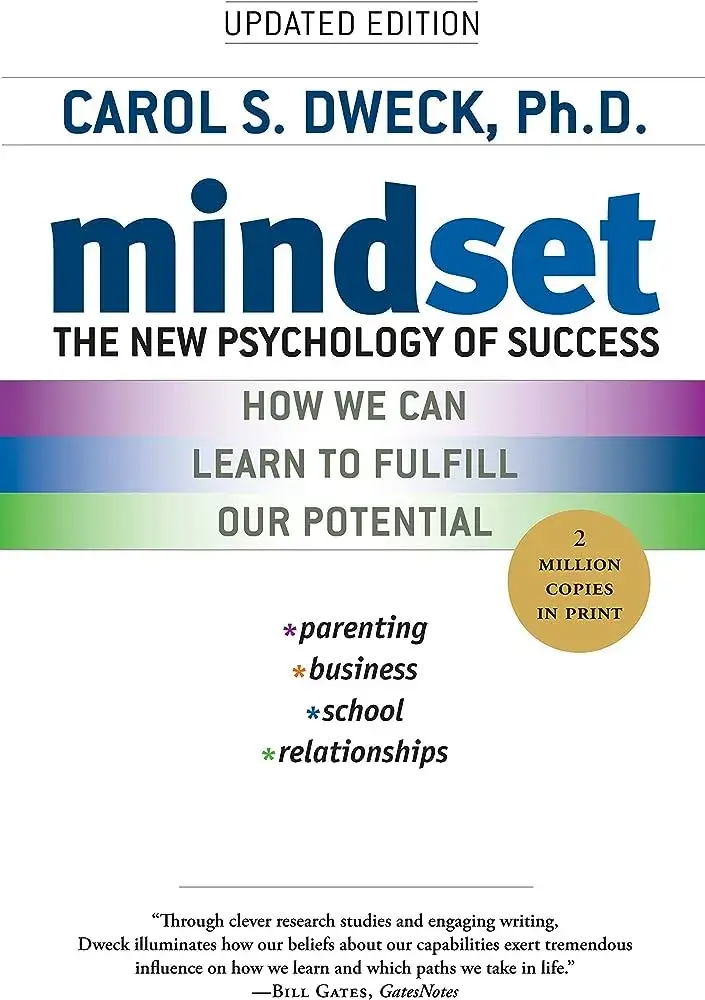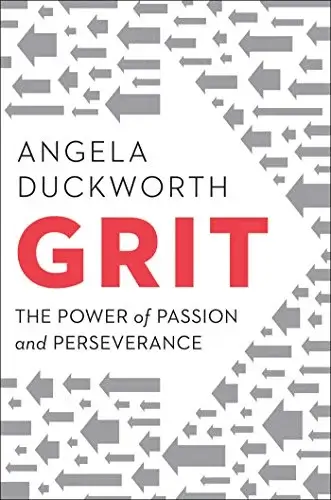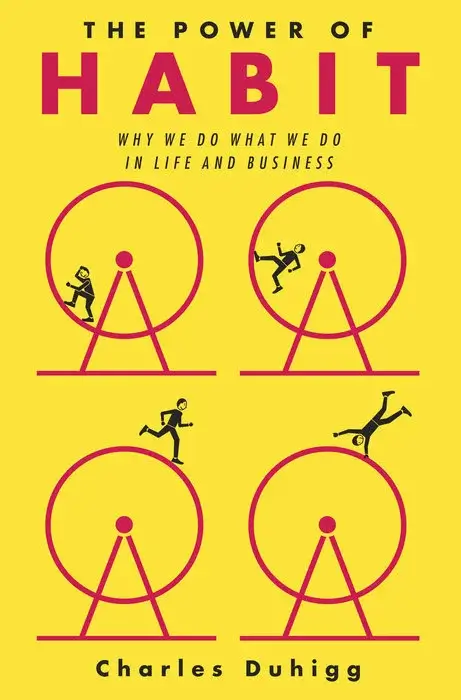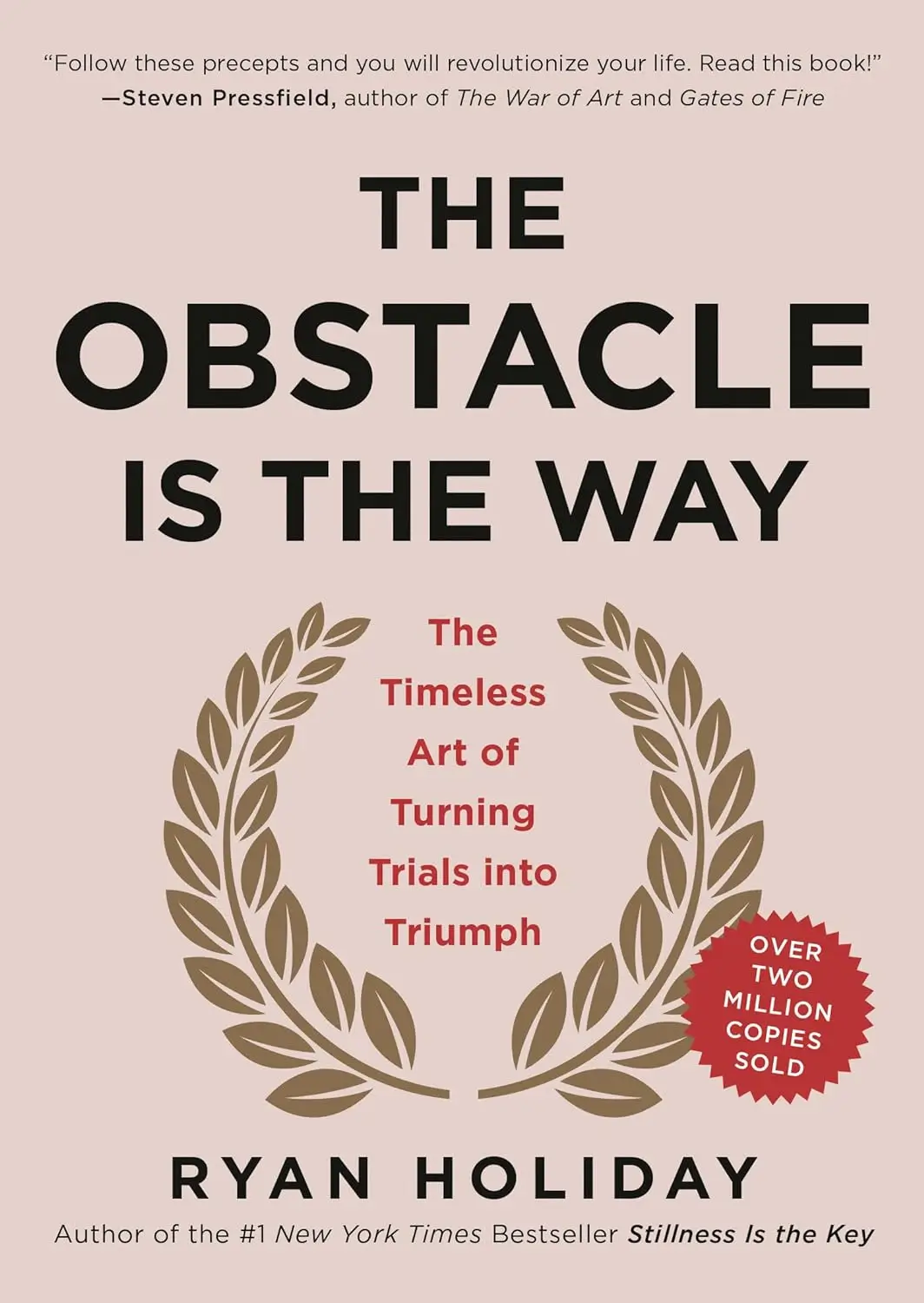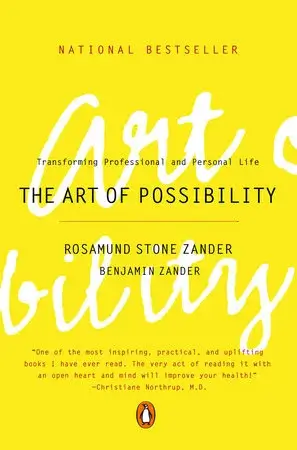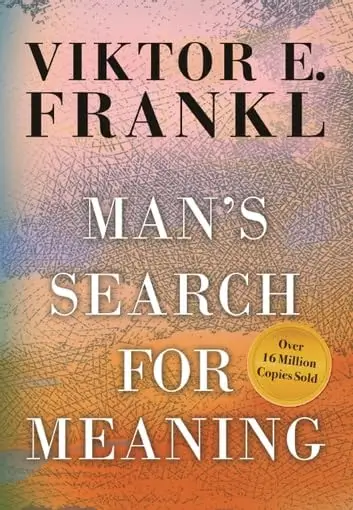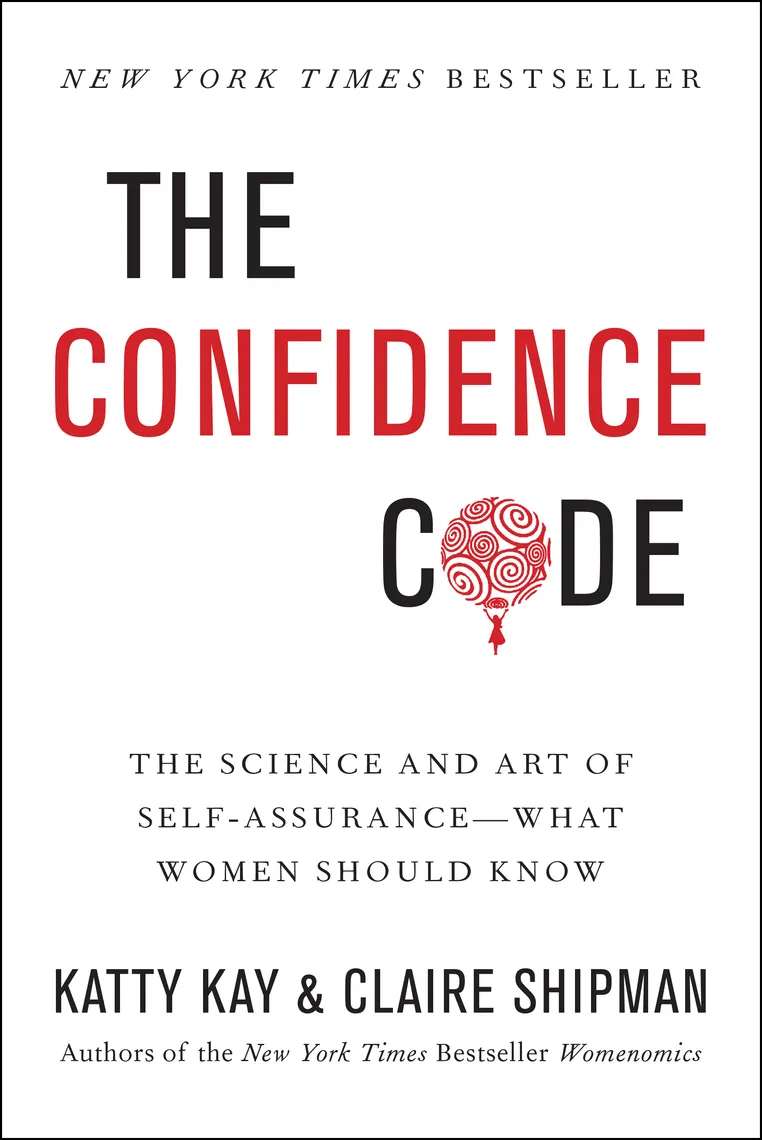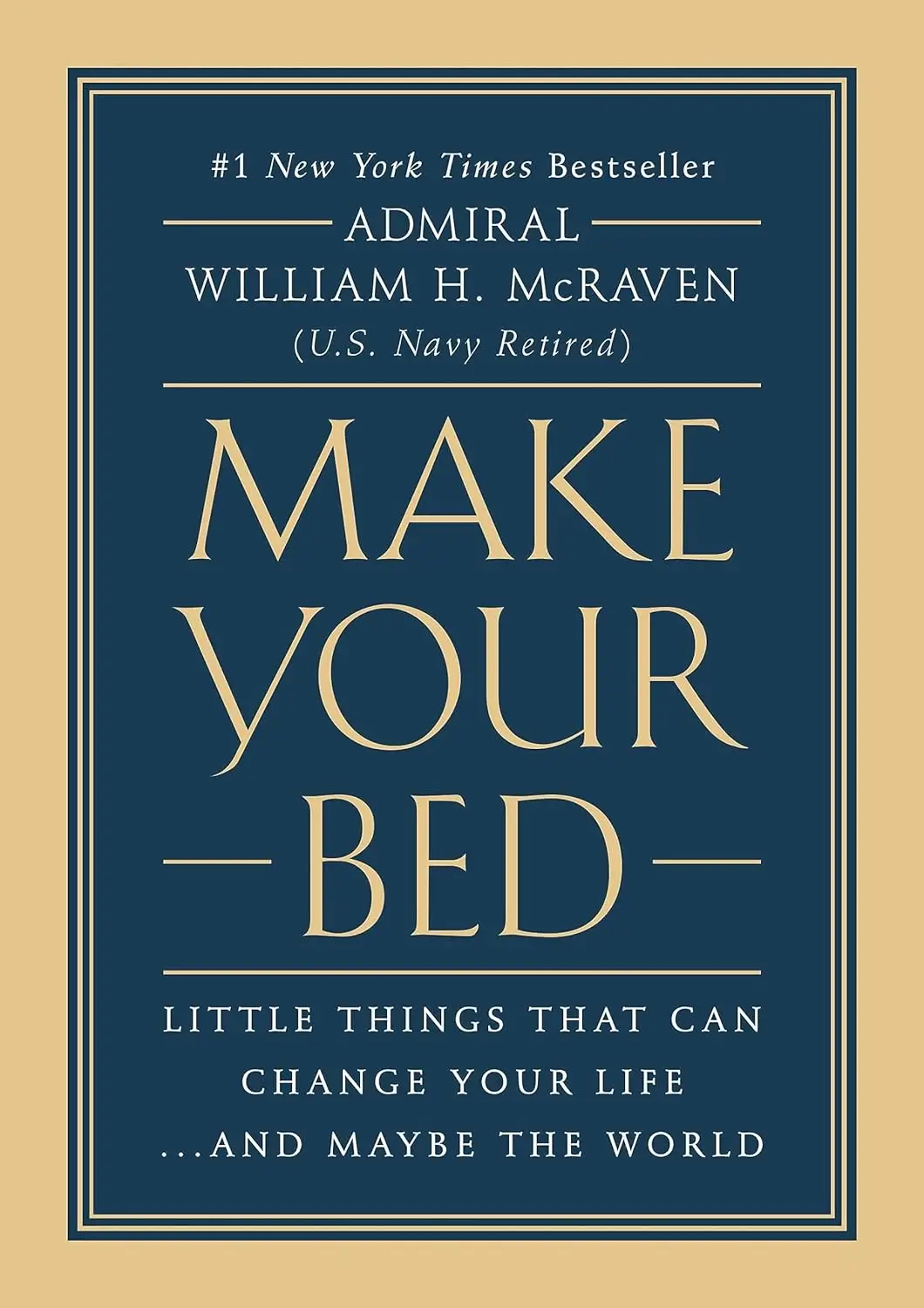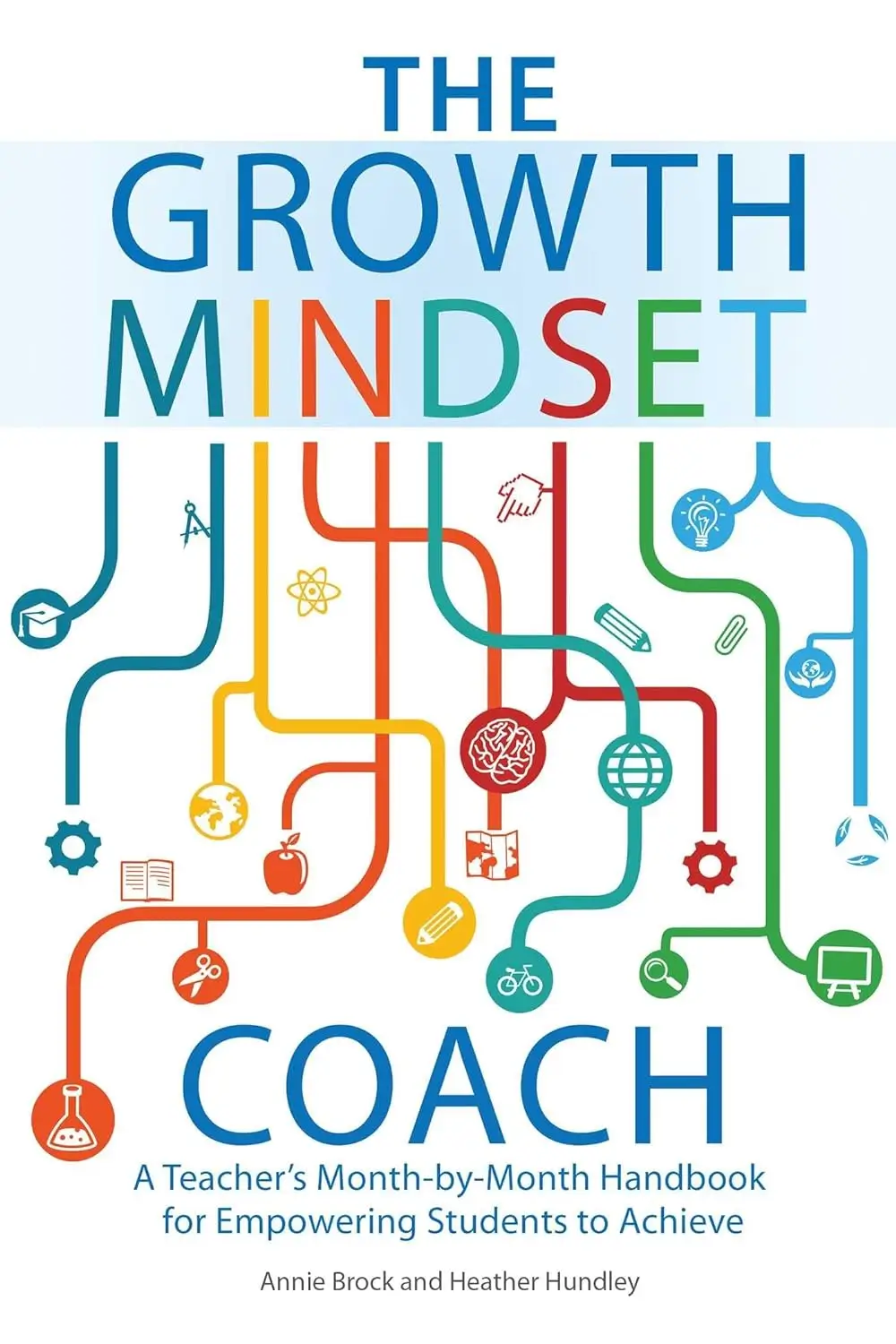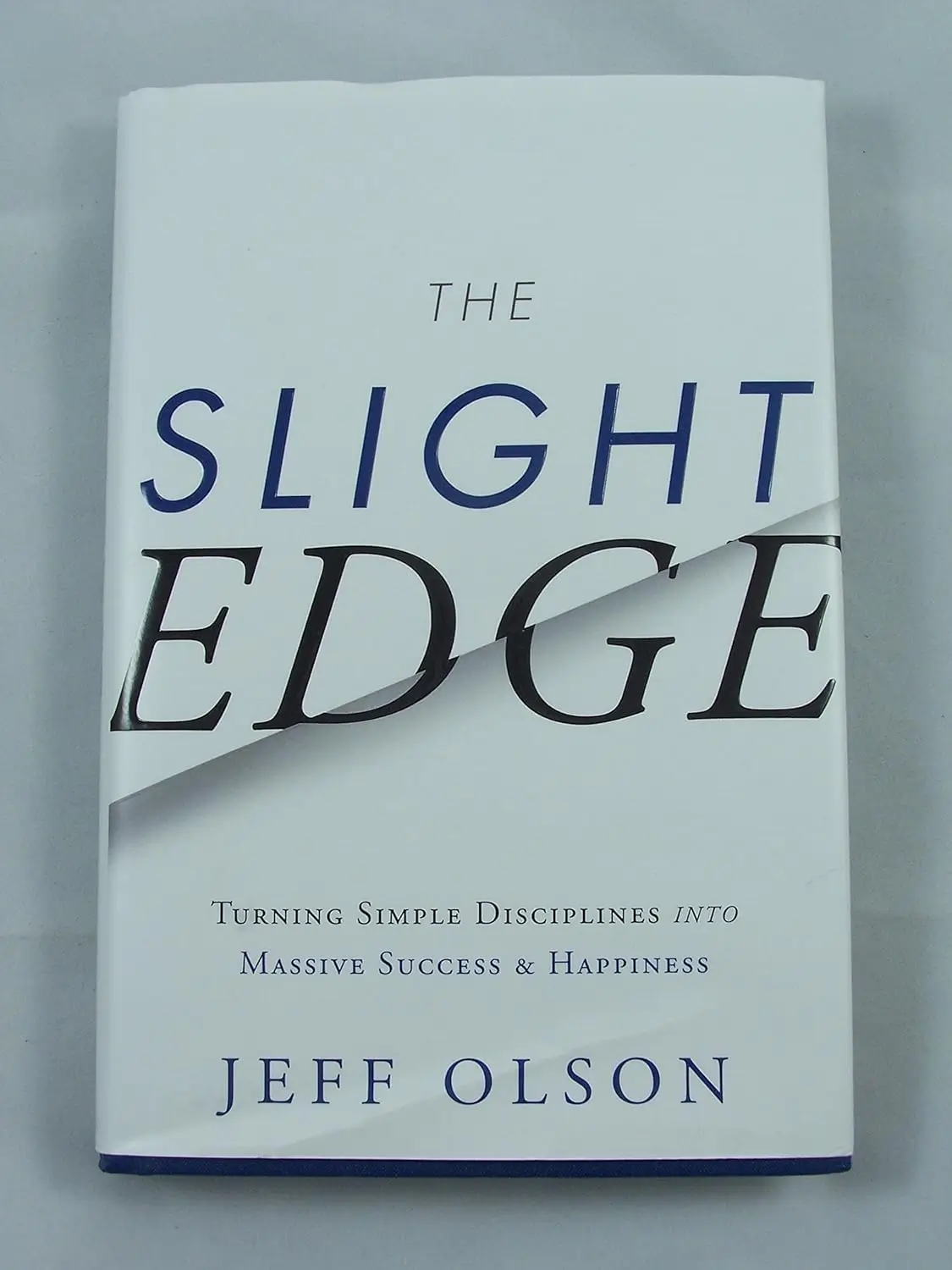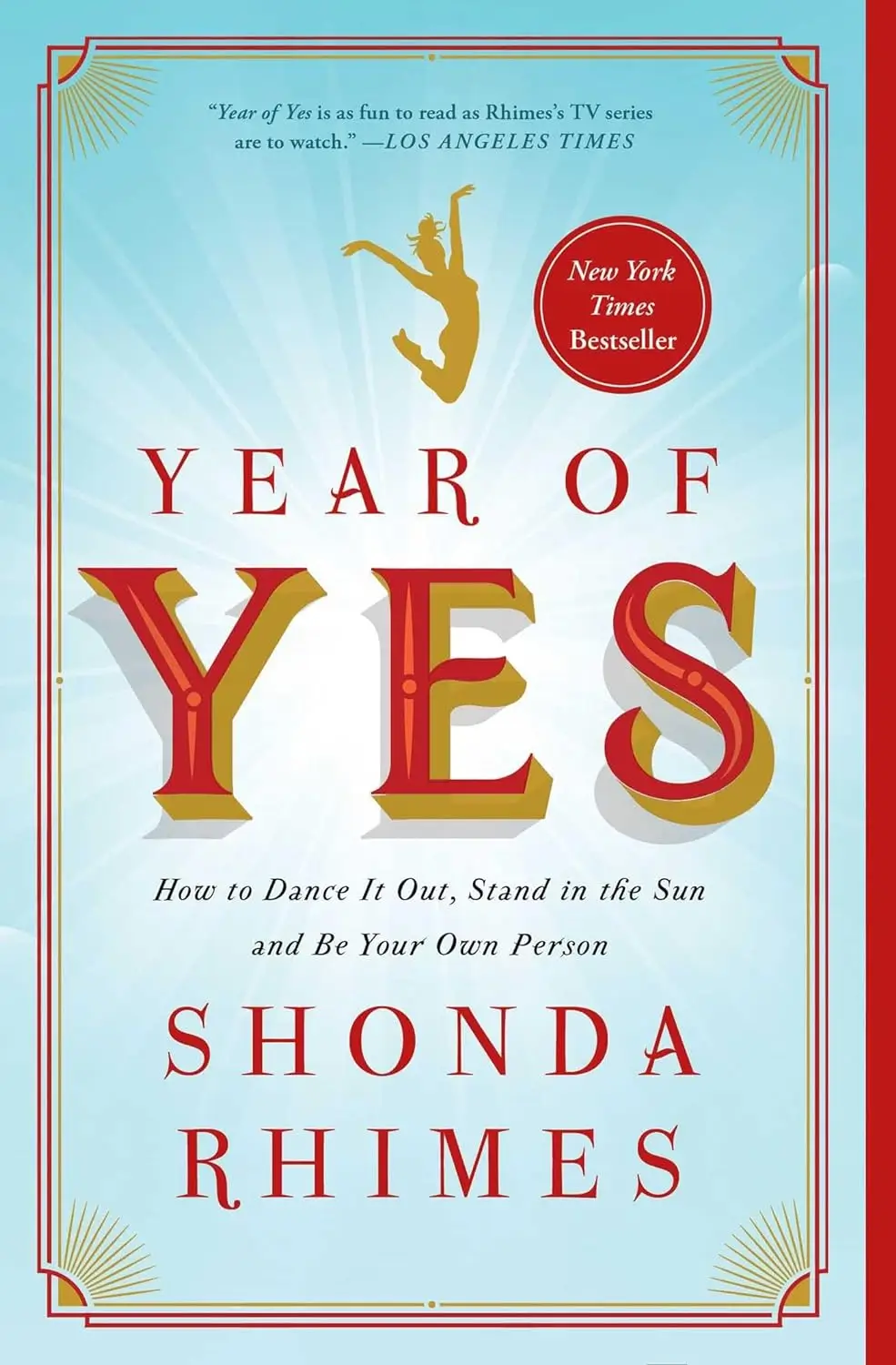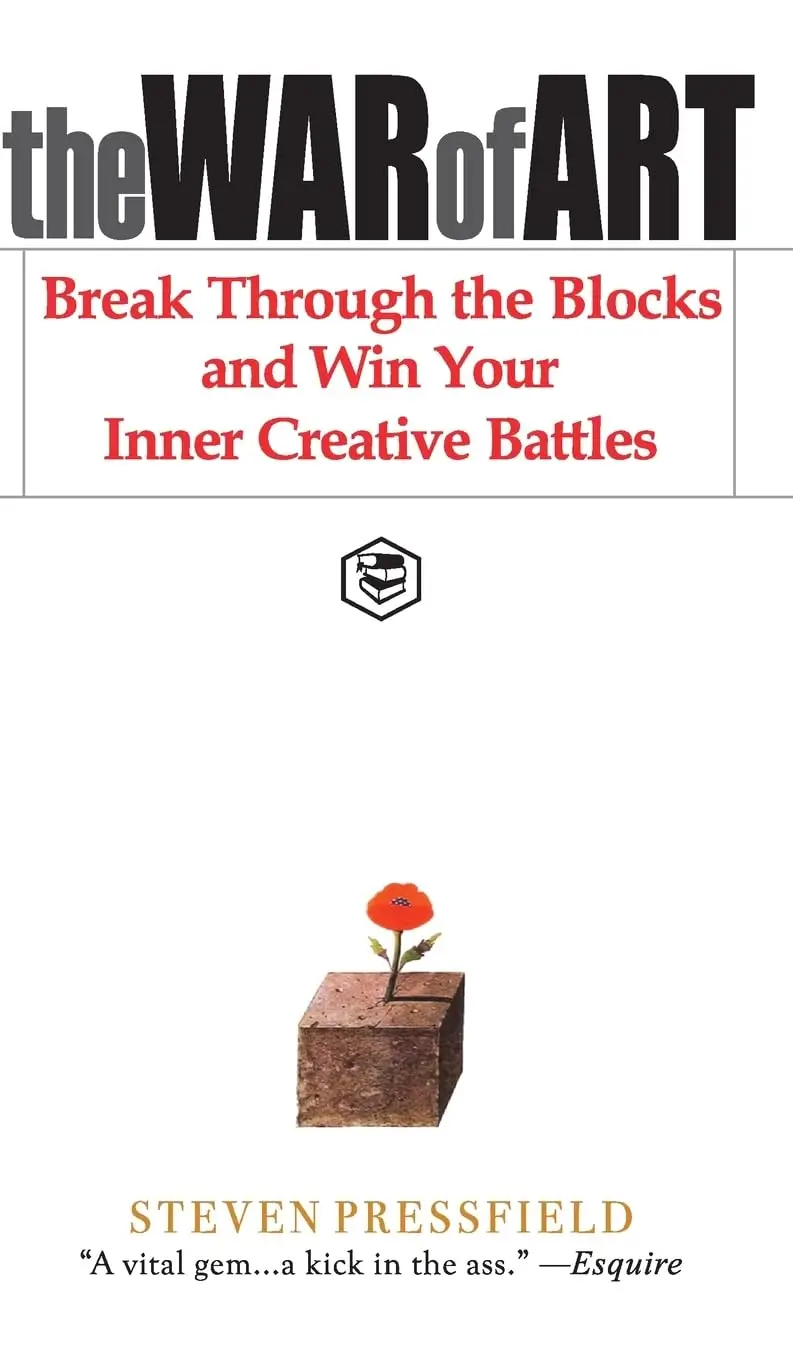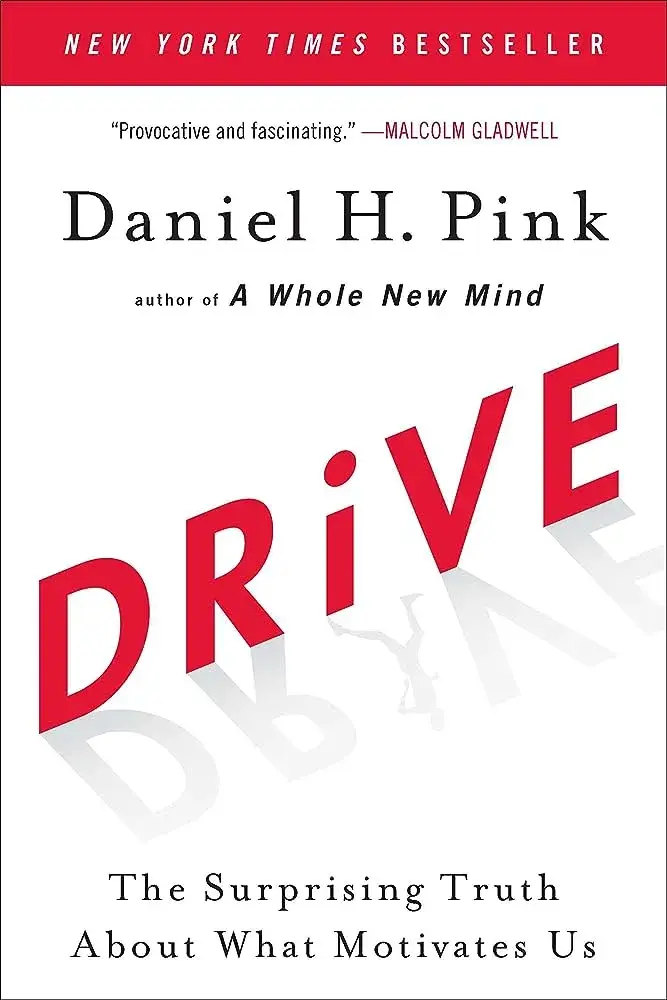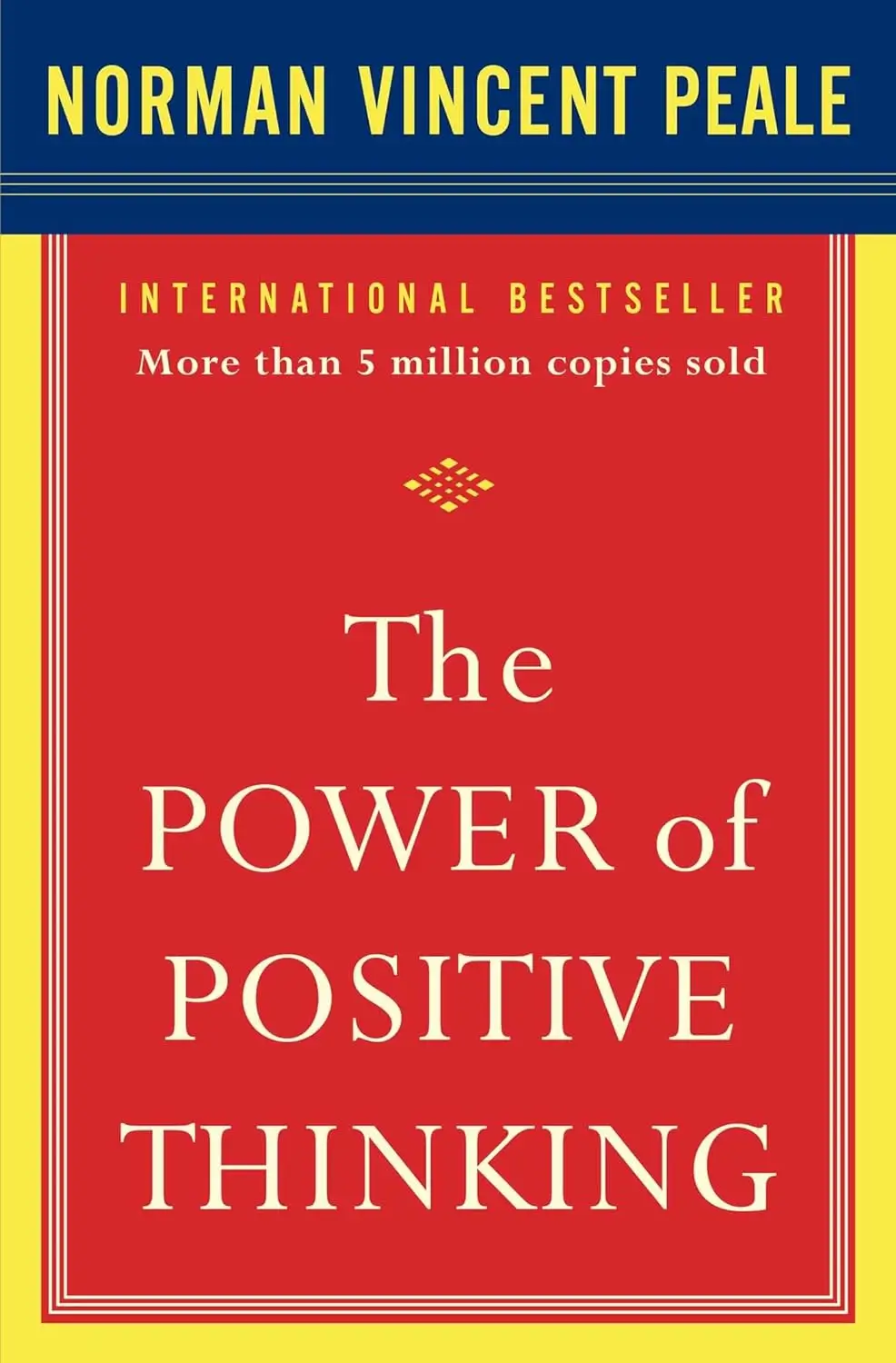Ever feel stuck in a rut? Like your potential is out there, but you just don’t know how to reach it? Growing up is tough, and sometimes our brains convince us that we’re ‘just not good enough’.
It’s frustrating, right? Feeling like your talents might be fixed, that mistakes mean you should quit, or watching your friends sail past while you feel left behind.
Luckily, there is a way to unlock your true potential, turn challenges into opportunities, and silence those inner doubts! Here are the best 15 books specifically designed to help young adults cultivate a growth mindset.
Disclaimer: The scores of these books have been selected based on growth mindset strategies provided, Reddit and Quora users, and of course, personal opinions. Also, if you buy some of these books we will earn a small commission at no additional cost to you.
1. Atomic Habits
James Clear’s “Atomic Habits” reveals the power of tiny, consistent improvements.
This book provides a practical framework for understanding habit formation, breaking bad habits, and building effective systems that support your goals.
”Atomic Habits” offers a clear, science-backed approach to creating lasting change in your life. It emphasizes that small, sustainable changes can compound over time, leading to remarkable results.
For Who is it?
- Anyone looking to develop positive habits and break negative ones.
- Readers interested in practical applications of behavioral psychology.
- People striving for continuous improvement in personal and professional areas.
- Those seeking a structured and science-backed approach to change.
Pros and Cons
| Pros | Cons |
|---|---|
| Incredibly practical and actionable advice | Can feel repetitive in some sections |
| Focuses on small, sustainable improvements for long-term success | Might oversimplify the complexities of habit formation for some people |
| Helps you understand the underlying psychology of habits | |
| Offers strategies for optimizing your environment for success |
Studies found that students with a growth mindset performed better in reading, highlighting the positive relationship between growth mindset and academic success. (Source: OECD)
2. Mindset: The New Psychology of Success
In “Mindset: The New Psychology of Success,” Carol S. Dweck explores the profound impact our beliefs about ability have on our potential for growth.
Dweck introduces the concept of a growth mindset, where intelligence and talent are seen as starting points that can be developed through dedication and learning.
“Mindset” challenges the notion of fixed traits, empowering you to embrace challenges and view setbacks as opportunities for progress.
For Who is it?
- Students and young professionals eager to maximize their potential.
- Educators wanting to foster a growth mindset in their classrooms.
- Anyone who struggles with perfectionism or a fear of failure.
- Those who want to understand how beliefs impact success.
Pros and Cons
| Pros | Cons |
|---|---|
| Offers a transformative perspective on potential and achievement. | Some of the examples feel dated. |
| Encourages resilience and a love of learning. | The focus is primarily on academic and professional achievement. |
| Provides tools for developing a growth mindset. | |
| Inspires a shift away from self-limiting beliefs. |
"In a growth mindset, challenges are exciting rather than threatening. So rather than thinking, oh, I’m going to reveal my weaknesses, you say, wow, here’s a chance to grow."
 Carol S. Dweck
Carol S. Dweck 3. Grit: The Power of Passion and Perseverance
In “Grit: The Power of Passion and Perseverance,” Angela Duckworth argues that grit – a blend of passion and unwavering perseverance – is a stronger predictor of success than talent or intelligence.
Duckworth shares insights from various fields, demonstrating how grit fuels achievement in diverse areas.
”Grit” emphasizes the importance of sustained effort and a “never-give-up” attitude in reaching your goals.
For Who is it?
- Anyone seeking to cultivate resilience and determination.
- Those interested in the key factors that drive long-term success.
- People who easily become discouraged by setbacks.
- Readers who want to develop a deeper sense of purpose.
Pros and Cons
| Pros | Cons |
|---|---|
| Offers a compelling argument for the importance of grit. | Can sometimes feel overly focused on individual effort. |
| Filled with inspiring stories of perseverance. | May downplay the role of external factors and privilege in some cases. |
| Provides practical strategies for developing grit. | |
| Emphasizes the importance of finding your passion. |
Free Growth Mindset Book Finder
4. The Power of Habit
In “The Power of Habit,” Charles Duhigg explores the science behind how habits form, function, and can be transformed.
He breaks down the habit loop (cue, routine, reward) and explains how understanding this pattern is key to changing unwanted behaviors and creating new, beneficial ones.
”The Power of Habit” offers a fascinating look into the neuroscience of habits, providing insights that can be applied in various areas of life.
For Who is it?
- Anyone wanting to break bad habits and create positive ones.
- Those interested in the fascinating science behind habit formation.
- Readers seeking greater self-awareness and self-control.
- People who want to improve their productivity and overall well-being.
Pros and Cons
| Pros | Cons |
|---|---|
| Clearly explains the science of habits in an engaging way. | Can feel a bit formulaic at times. |
| Provides actionable steps for habit change. | Some case studies might seem irrelevant to certain readers. |
| Offers a framework for analyzing and transforming existing habits. | |
| Helps you understand how companies and marketers use habits to influence behavior. |
"A room without books is like a body without a soul."
 Marcus Tullius Cicero
Marcus Tullius Cicero 5. The Obstacle Is the Way
In “The Obstacle Is the Way,” Ryan Holiday draws inspiration from Stoic philosophy to show how obstacles can become growth opportunities. He argues that overcoming challenges is the key to achieving our goals and living a fulfilling life.
”The Obstacle Is the Way” provides a mindset shift, emphasizing that we can control our response to challenges, using them to become stronger and wiser.
For Who is it?
- Anyone facing setbacks or difficult circumstances.
- Those interested in Stoic philosophy and its practical applications.
- Readers seeking to develop resilience and mental toughness.
- People looking for a fresh perspective on overcoming adversity.
Pros and Cons
| Pros | Cons |
|---|---|
| Offers a powerful framework for turning obstacles into opportunities. | Could be perceived as overly focused on individual will. |
| Provides timeless wisdom inspired by Stoic philosophy. | Some of the examples focus heavily on historical figures. |
| Encourages discipline, focus, and action in the face of challenges. | |
| Offers a practical toolkit for navigating adversity. |
A study found that individuals with a growth mindset tend to experience less stress and psychological distress, demonstrating the potential of this mindset to foster resilience and positive coping mechanisms. (Source: Frontiers)
6. The Art of Possibility
”The Art of Possibility” by Rosamund Stone Zander and Benjamin Zander offers a refreshing and optimistic framework for personal and professional development.
The Zanders blend their experiences in therapy and classical music to present a series of practices that invite transformation through possibility.
”The Art of Possibility” will encourage you to shift from a mindset of scarcity and competition to one of abundance and collaboration. It argues that in the realm of possibility, we can find paths to connect with others and turn even the most impossible situations into opportunities.
For Who is it?
- Creative people seeking to unlock new ways of thinking and being.
- Professionals looking to foster a culture of innovation and collaboration.
- Leaders and educators wanting to inspire and uplift their teams or students.
- Anyone interested in personal growth and relationship-building.
Pros and Cons
| Pros | Cons |
|---|---|
| Offers a unique approach that combines art and psychology. | May require readers to be open-minded about less conventional methods. |
| Provides inspiring anecdotes from the authors’ personal experiences. | The narrative can sometimes feel abstract without concrete steps. |
| Encourages a sense of abundance and joyful participation in life. | |
| Presents clear practices for shifting perceptions and fostering connections. |
7. Man’s Search for Meaning
Viktor Frankl’s “Man’s Search for Meaning” is a profound narrative and psychological exploration based on his experiences in Nazi death camps during World War II.
The book introduces Frankl’s theory of logotherapy, which suggests that the primary drive in humans is not pleasure, it’s the pursuit of what we find meaningful.
”Man’s Search for Meaning” stands as a beacon of hope, suggesting that even in the direst circumstances, a person can find reasons to continue living through a purpose-driven mindset.
For Who is it?
- Readers grappling with existential questions or going through hardship.
- Those interested in psychological perspectives on meaning and purpose.
- People in search of a philosophical approach to coping with suffering.
- Anyone seeking a story of resilience and the triumph of the human spirit.
Pros and Cons
| Pros | Cons |
|---|---|
| Imbues readers with a sense of purpose and understanding of human resilience. | Some may find the harrowing accounts of concentration camps difficult to read. |
| Provides a strong philosophical and psychological foundation for a growth mindset. | Might be considered heavy or complex for those new to psychological theories. |
| Offers practical applications of logotherapy principles in everyday life. | |
| Inspires a hopeful outlook despite adversity and suffering. |
"The only thing that you absolutely have to know, is the location of the library."
 Albert Einstein
Albert Einstein 8. The Confidence Code
”The Confidence Code” by Katty Kay and Claire Shipman is a compelling exploration into the nature and importance of confidence.
The book combines research in genetics, gender, behavior, and cognition to understand the science and art of self-assurance. Kay and Shipman delve into the reasons why women are often less confident than men and provide actionable advice to bridge this gap.
”The Confidence Code” is an empowering call to action for women to embrace their abilities and step into their power with confidence.
For Who is it?
- Women looking to boost their confidence and self-esteem.
- Professionals interested in leadership and personal development.
- Anyone who feels their lack of confidence is hindering their potential.
- Readers who enjoy a blend of storytelling, research, and practical advice.
Pros and Cons
| Pros | Cons |
|---|---|
| Engagingly blends research with relatable anecdotes and stories. | Some may desire more focus on confidence-building in men. |
| Provides actionable strategies for building and practicing confidence. | Can be perceived as more applicable to professionals than to a broader audience. |
| Addresses the unique challenges women face in developing self-assurance. | |
| Empower readers to understand and overcome internal barriers to confidence. |
Research indicates that reading regularly can improve brain activity, memory, and cognitive function, acting like a “superfood” for the brain. Additionally, it can lower blood pressure, reduce stress, improve sleep quality, and even extend life expectancy (Source: Nuvance Health)
9. Make Your Bed: Little Things That Can Change Your Life…And Maybe the World
In “Make Your Bed: Little Things That Can Change Your Life…And Maybe the World”, Admiral William H. McRaven shares wisdom and insights from his career as a Navy SEAL.
The book expands on his famous commencement speech at the University of Texas at Austin, outlining the ten principles he learned during Navy SEAL training that helped him overcome challenges in his training, later in his career, and also in life.
”Make Your Bed” is a book that emphasizes the importance of the little things in life and how a series of small actions and decisions can have a profound impact on the world around us.
For Who is it?
- People looking for motivation and strategies to face life’s challenges.
- Those interested in military perspectives on discipline and leadership.
- Anyone seeking a short read filled with actionable life lessons.
- Readers who appreciate personal anecdotes that illustrate broader life lessons.
Pros and Cons
| Pros | Cons |
|---|---|
| Provides simple yet profound advice that’s easy to apply to daily life. | May be seen as too prescriptive or simplistic by some readers. |
| Delivers inspiring and practical insights from a decorated military leader. | The military context might not resonate with all readers. |
| Encourages building strong habits through discipline and consistency. | |
| Focuses on the transformative power of small daily acts of discipline. |
10. The Growth Mindset Coach
”The Growth Mindset Coach” by Brock Muir and Eddie Moore Jr. is a resourceful guide aimed at educators and coaches but with insights valuable to anyone.
It offers month-by-month strategies for teaching the concept of a growth mindset and helps integrate it into everyday practice. The book provides tools and activities designed to foster long-lasting personal and professional development.
”The Growth Mindset Coach” presents the growth mindset as a foundational element for success, encouraging a shift from fixed to growth-oriented thinking.
For Who is it?
- Educators and coaches seeking to cultivate a growth mindset in their students or athletes.
- Professionals and team leaders aiming to develop growth-oriented teams.
- People interested in understanding and applying growth mindset principles.
- Readers looking for a structured approach to personal development.
Pros and Cons
| Pros | Cons |
|---|---|
| Offers a well-structured, month-by-month program for mindset development. | Primarily targeted at educators, which may not appeal to all readers. |
| Includes practical activities and real-world applications. | Some strategies may require adaptation for non-educational settings. |
| Emphasizes actionable steps for nurturing a growth mindset. | |
| Encourages reflection and self-improvement through exercises and tips. |
"Becoming is better than being."
 Carol S. Dweck
Carol S. Dweck 11. The Slight Edge
Jeff Olson’s “The Slight Edge” is a strategic book that turns simple everyday disciplines into a massive success over time. It’s a philosophy that shows how small actions, done consistently, can lead to significant results.
Olson explains that it’s not the big things we do occasionally but the little things we do all the time that make the difference.
”The Slight Edge” is about applying the compound effect to habits and efforts. It’s for those who believe in the power of incremental improvement and are willing to invest in small, daily disciplines that compound over time into significant achievements.
For Who is it?
- People seeking to improve through consistent, daily actions.
- Entrepreneurs and professionals interested in long-term success strategies.
- Readers who appreciate a focus on habits and regular discipline.
- Anyone who wants to understand how small choices add up over time.
Pros and Cons
| Pros | Cons |
|---|---|
| Emphasizes the power of incremental, daily improvements. | Some may find the concepts too simplistic or repetitive. |
| Offers motivational insights for building lasting success. | May not provide immediate solutions for those seeking quick results. |
| Easy to understand and apply to various aspects of life. | |
| Encourages readers to be patient and persistent with their goals. |
Free Growth Mindset Book Finder
12. Year of Yes
In “Year of Yes,” Shonda Rhimes, the powerhouse behind television hits like “Grey’s Anatomy” and “Scandal,” shares how saying “yes” to everything changed her life.
Rhimes recounts her journey of transformation from introversion and comfort zone living to embracing new challenges and opportunities with open arms.
”Year of Yes” is about stepping out of the shadows and living life more fully.
For Who is it?
- People looking to break out of their comfort zones.
- Readers seeking inspiration for personal transformation and self-improvement.
- Anyone interested in the life-changing impact of a positive mindset.
Pros and Cons
| Pros | Cons |
|---|---|
| Engaging and relatable storytelling from a successful TV producer. | Specific anecdotes may resonate more with fans of her shows. |
| Encourages embracing challenges and being open to new experiences. | The narrative may appear as less structured self-help advice. |
| Provides a powerful message of empowerment and transformation. | |
| Demonstrates the significant impact of a simple change in mindset. |
Reading for just six minutes can reduce stress levels by 68%, making it more effective than listening to music or taking a walk. (Source: University of Sussex)
13. The War of Art
”The War of Art” by Steven Pressfield is a motivational book that tackles the concept of resistance, the force that stands between us and our creative pursuits.
Pressfield, a novelist and screenwriter, delves into the challenges artists, writers, entrepreneurs, and athletes face when trying to achieve their personal and professional goals.
Pressfield personifies resistance as the enemy and provides strategies to combat it, advocating for discipline, perseverance, and the professional mindset necessary to conquer one’s inner battles.
For Who is it?
- Creatives and artists struggling with procrastination or creative blocks.
- Entrepreneurs and professionals facing challenges in realizing their visions.
- People seeking to understand and overcome personal barriers to success.
- Readers interested in a straightforward approach to conquering inner demons.
Pros and Cons
| Pros | Cons |
|---|---|
| Offers a compelling perspective on overcoming internal obstacles. | Some may find the military metaphors and combative tone unrelatable. |
| Provides practical advice for achieving discipline and focus. | May be perceived as overly simplistic or direct for complex personal issues. |
| Inspires action and commitment to one’s craft or career. | |
| Empowers readers to confront and defeat the force of resistance. |
14. Drive: The Surprising Truth About What Motivates Us
In “Drive: The Surprising Truth About What Motivates Us,” Daniel H. Pink examines the underlying factors that drive human motivation, challenging traditional notions of reward and punishment as primary motivators.
Pink proposes that autonomy, mastery, and purpose are the true drivers that lead to greater satisfaction and success in work and life.
”Drive” is a thought-provoking book that provides insights into how we can harness our intrinsic motivations to achieve higher levels of creativity, productivity, and happiness.
For Who is it?
- Business leaders and managers looking to motivate their teams more effectively.
- People seeking to understand and enhance their own motivation.
- Readers interested in the psychology behind human behavior and motivation.
- Anyone looking for strategies to create a more fulfilling and autonomous work life.
Pros and Cons
| Pros | Cons |
|---|---|
| Challenges conventional views on motivation with well-researched insights. | Some critics argue that it oversimplifies complex psychological concepts. |
| Offers practical advice for applying autonomy, mastery, and purpose in various settings. | May not address all aspects of motivation for every person. |
| Engages readers with compelling examples and case studies. | |
| Encourages a shift towards more meaningful and self-directed activities. |
15. The Power of Positive Thinking
”The Power of Positive Thinking” by Norman Vincent Peale is a classic self-help book that advocates for the use of spiritual and psychological practices to overcome mental obstacles and achieve personal goals.
Peale emphasizes the importance of faith, positive thinking, and the power of prayer to improve one’s life.
”The Power of Positive Thinking” offers practical advice, affirmations, and anecdotes to illustrate how a positive mindset can lead to better health, happiness, and success.
For Who is it?
- Readers interested in the intersection of spirituality and psychology.
- People seeking to overcome negativity and achieve personal and professional success.
- Those who are looking for inspiration and methods to improve their mental attitude.
- Anyone in need of a motivational boost and practical strategies for positive living.
Pros and Cons
| Pros | Cons |
|---|---|
| Provides time-tested principles for developing a positive mindset. | Some may find the approach too rooted in religious faith. |
| Offers practical techniques for overcoming negative thoughts and attitudes. | The concepts might seem outdated or simplistic to some readers. |
| Encourages readers to believe in their own abilities and potential. | |
| Includes inspiring stories and examples of successful application of its principles. |
"Love challenges, be intrigued by mistakes, enjoy effort, and keep on learning."
 Carol S. Dweck
Carol S. Dweck 

